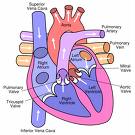There are several reasons why you may get a pain in your chest, many of them minor, but there is a possibility that you may be experiencing the early warning signs of a heart attack or a stroke. To be on the safe side I think you should check with a doctor as soon as possible. Don’t put it off!
With some symptoms we have a natural tendency to not act on them in the hope that they'll just go away. Some patients also delay because they fear of making a fuss or feeling embarrassed if symptoms turn out to be a false alarm. During a heart attack, blood flow to heart muscle is reduced or cut off, often because a blood clot blocks an artery. When heart muscle is starved of oxygen-rich blood it can die.
You say you also experience pain in your mouth. Heart attack symptoms can vary dramatically and from person to person and even between sexes. These symptoms can range from mild to severe and they may come and go.
The important ones to look out for are:
1.Uncomfortable pressure, fullness, squeezing or pain in the centre of the chest.
2.Discomfort in other areas, such as the neck, arms, jaw, back or stomach.
3.Shortness of breath, light-headedness, nausea or breaking out in a cold sweat
Ideally, treatment to restore blood flow should begin within one hour after symptoms begin. The faster you can get to Accident and Emergency, the better your chance of survival. According to the British Heart Foundatio, many people fail to recognise the symptoms and one in three heart attack victims die before they get to hospital so like I said don’t put it off. Contact a doctor as soon as possible, even if it’s just for peace of mind.
With some symptoms we have a natural tendency to not act on them in the hope that they'll just go away. Some patients also delay because they fear of making a fuss or feeling embarrassed if symptoms turn out to be a false alarm. During a heart attack, blood flow to heart muscle is reduced or cut off, often because a blood clot blocks an artery. When heart muscle is starved of oxygen-rich blood it can die.
You say you also experience pain in your mouth. Heart attack symptoms can vary dramatically and from person to person and even between sexes. These symptoms can range from mild to severe and they may come and go.
The important ones to look out for are:
1.Uncomfortable pressure, fullness, squeezing or pain in the centre of the chest.
2.Discomfort in other areas, such as the neck, arms, jaw, back or stomach.
3.Shortness of breath, light-headedness, nausea or breaking out in a cold sweat
Ideally, treatment to restore blood flow should begin within one hour after symptoms begin. The faster you can get to Accident and Emergency, the better your chance of survival. According to the British Heart Foundatio, many people fail to recognise the symptoms and one in three heart attack victims die before they get to hospital so like I said don’t put it off. Contact a doctor as soon as possible, even if it’s just for peace of mind.
